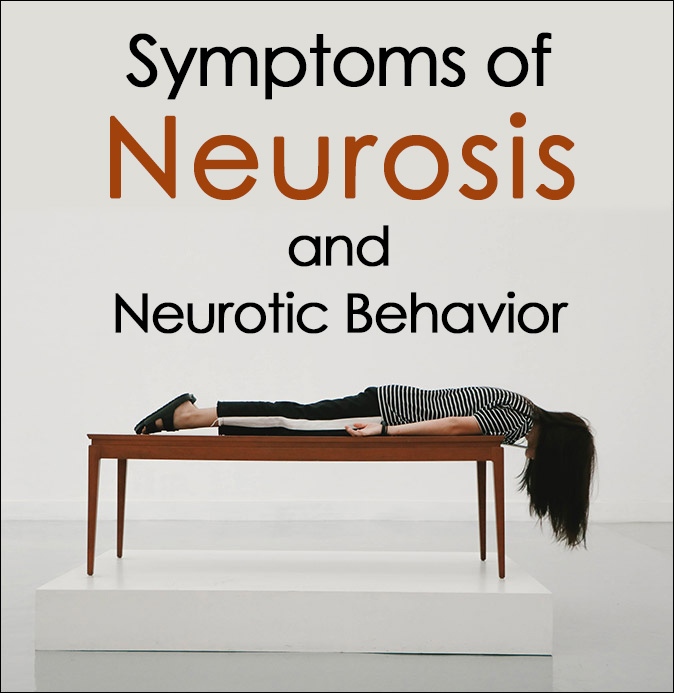
Neurotic behavior or neurosis is a term often used casually to describe a person who is overly vigilant or anxious.
Like other words, for example “gay” (which was previously used to mean happy) the meaning of the word “Neurosis” has changed over time. In the past, neurosis meant any mental illness other than psychosis. Today, neurosis is thought of as a personality trait.
Because it is used so frequently today, it’s important to understand the root cause, history, symptoms, and possible natural approaches to overcoming neurosis.
It’s also helpful to consider whether or not neurosis can be a useful trait in some people.
The History of Neurosis
The Scottish physician William Cullen created the term “neurosis” way back in 1769, followed by Sigmund Freud, who then popularized the term for widespread use.
Freud used neurosis to describe all nerve disorders that were not full blown manic episodes or hallucinogenic in nature.
Freud categorized the difference between neurosis and psychosis as follows:
“In neurosis, the ego suppresses part of the id out of allegiance to reality, whereas in psychosis it lets itself be carried away by the id and detached from a part of reality.”
– Sigmund Freud
Since then, we have made major advancements in our understanding of the complexity of mental illnesses. The name neurosis has been replaced with a wide range of granular mental illnesses that identify specific disorders.
What is the Definition of Neurosis?
The word “neurotic” is thrown around without many people fully understanding what neurosis is.
In fact, neurosis is classed and defined as a personality trait where people focus excessively on negative emotional states.
A person who is neurotic may internalize their problems and phobias, and they will often exhibit symptoms externally that are outside of the socially accepted norms.
Neurosis can come in many forms and normally results as a symptom of stress or anxiety similar to a nervous breakdown.

Symptoms of Neurosis and Neurotic Behavior
It’s quite common for most people to display neurotic behavior without even knowing they do it. But the people that spend time with them daily pick up on their symptoms of neurosis over time.
Here are some common traits of neurotic people:
- Complaining about physical symptoms when none exist
- Stressing over little things
- Ruminating, or having obsessive thoughts
- Constant need for perfection
- Being overly needy or dependent on another person or other people
- Can’t effectively manage basic needs
- Exhibiting “Drama Queen” behavior
- Bouts of “Road Rage”
- Envying other people
- Difficulties with relationships
- Obsessing over a child’s health or safety
Is Neurosis a Mental Illness?
Although neurosis used to be classed as a mental illness in the Diagnostic and Statistical Manual of Mental Disorders (DSM-2), this is no longer the case.
The term neurosis was removed from the third edition of the DSM in 1980 in favor of more specific disorders like:
- Anxiety Disorder
- Post Traumatic Stress Disorder (PTSD)
- Obsessive Compulsive Disorder (OCD)
- Depression
Creativity, Intelligence and Neurosis
Many scientists suggest that being neurotic is not all bad and can be associated with being inventive.
They say that the same areas of the brain light up for a person who is having a genius idea as those who have an anxious and neurotic brain.
In a paper from Trends in Cognitive Sciences, Adam Perkins of King’s College London stated:
“Neurotics are more susceptible to negative emotions because they’re particularly attuned to threats, both real and imagined.”
– Adam Perkins
If neurosis is properly managed by healthy lifestyle choices then arguably it could be a good thing, for some people.
7 Ways to Overcome Neurosis
There are several factors that create and sustain neurosis, such as the dire need for constant approval. If these misguided thoughts are eliminated then we’ll be on our way to understanding how to heal.
Alongside excessive stress, a neurotic person often holds many unhealthy and repetitive ideas in their head, sometimes referred to as Automatic Negative Thoughts.
Some of the ways to overcome neurosis will require an effort and persistence to be effective, but it’s critical to keep working on them. For starters, learn to become independent, slowly build self-esteem, and appreciate what you do have instead of what you don’t.

Here are 7 unhelpful thought patterns that often persist with neurosis, and suggestions for how to overcome them.
1. Avoiding Responsibility and Seeking Approval
How to overcome it: Take full responsibility for your own actions and learn how to let go of the need for approval.
2. Condemning Mistakes
How to overcome it: We all make mistakes, so it’s important to recognize this fact of life and forgive your own, as well as other people’s as mistakes. Being more accepting of everyone’s capacity to make mistakes will lift the burden of always being concerned about them.
3. Viewing Suffering as an Externally Imposed Condition
How to overcome it: Understand that our own choices impact our lives and we can control most of what happens to us by making healthy lifestyle choices.
4. Obsessing Over Possible Negative Outcomes
How to overcome it: Obsessing over negative outcomes perpetuates situations that are unfavorable. Instead, work to find the good in any given situation. Over time and with a little practice, this will become a habit and will happen more naturally.
5. Perfectionism or Not Accepting Unfortunate Conditions
How to overcome it: Life gets messy, period. No matter who you are, you are going to experience some less than favorable conditions. Accept them as part of life, and know that unfortunate conditions happen to everyone. It’s how you respond to the situation that matters the most.
6. Being Attached to Previous Situations
How to overcome it: Forgive and let go is the simplest answer. Past actions can hold us back and force us to become stuck in a rut. Focus instead on what you can do now in the present moment, and later in the future, rather than what happened in the past.
7. Not Taking Action
The Answer? Instead of waiting for the perfect moment (that may never arrive), take action now. Even small steps towards your goals matter, but you have to take that first step to move forward.
The actor Terry Crews has a great view on how you can get going with positive activities in life, like going to the gym. He says that “just going” is the most important part – even if you don’t work out.
This is a great point, and relates to a lot of the suggestions above, which outline the most important things to focus on:
- Forget about being perfect
- Accept imperfection
- Just do it
- Leave the past in the past
- Forgive and forget
- Above all else, just get started, no matter how small the step
Forming these new, healthy habits, will be the basis for living a happier and more productive life without the burden of stress.
Related Posts
- Stressed Out? What are Stress vs Anxiety Symptoms
Are you stressed out not knowing wether you're suffering from Anxiety or Stress? Though they…
- Cocaine Withdrawal Symptoms, Treatment and Detox
Giving up a stimulant substance like cocaine has a complex psychological effect on the recovering…
- High-Functioning Anxiety Symptoms and Treatment
Anxiety disorders are the most common form of mental illness in the United States. They…
